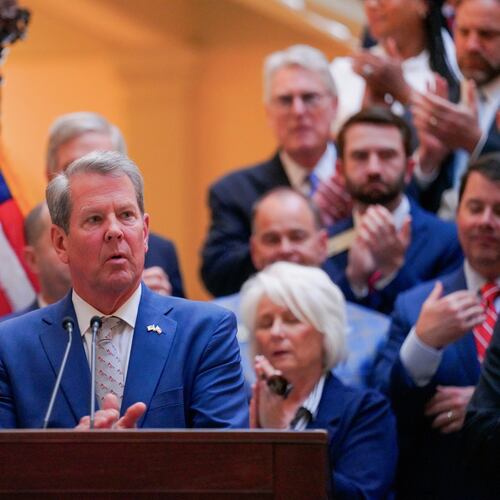Battling conflicts of interest and caseloads approaching levels that could leave children in dangerous situations, the Gwinnett County Juvenile Court is proposing a reorganization that would create a new Department of Child Advocacy and Juvenile Services in county government, separate from the judiciary branch.
The juvenile court has three judges, who supervise a staff including 17 probation officers and 13 guardians ad litem, or attorneys who advocate for children. The judges are responsible for the salaries and employment status of the attorneys who argue cases to them, said Judge Nhan-Ai Simms.
“All of these individuals have to independently investigate what is going on in a child’s life and present to the court what is in the child’s best interest,” Simms told county commissioners last week. “The problem that we run into is that we want to make sure that these individuals, whatever they recommend, that there is no fear from them in terms of how the court will feel about their recommendation.”
Gwinnett is the only county in Georgia where attorneys and probation officers for children are employed by the juvenile court, Simms said. Some other states have legislation establishing that the supervision of guardians ad litem by judges is a conflict of interest.
The county commission could vote next month on the reorganization proposal, which would cost about $263,000. Guardians ad litem, probation officers and programs staffers would transfer to the new department, which would be directed by Michelle Vereen, the current juvenile court administrator. The new department would operate out of the courthouse annex in Lawrenceville that houses the juvenile and recorder’s courts.
A new department could begin advocating this year for more child attorneys. In Gwinnett, each guardian ad litem carries 75 to 100 cases, Simms said. That’s close to the case load their counterparts in Fulton and DeKalb Counties shouldered two decades ago, when a child’s death sparked a federal lawsuit that led those counties to quintuple their child attorney workforce.
Now Fulton and DeKalb child attorneys carry 15 to 20 cases each, Simms said.
Case loads will likely get worse as the county’s growth continues, Simms said. The state legislature is also poised to pass a law that would raise the age of adulthood for criminal and traffic cases from 17 to 18, which would flood juvenile courts with 17-year-olds. The legislation, which has bipartisan support, would cause Gwinnett juvenile court cases to increase by at least 50%, according to Simms.
Simms said if the new law is passed the increased case load will literally happen overnight — from Dec. 31 to Jan. 1 of the year the law takes effect.
“That’s really how fast the transition will be,” Simms said.
The intake division, which conducts home investigations and authorizes removals and juvenile detentions, would remain in juvenile court after the new department is created. A new position would be created to coordinate the mental health court program.
Gwinnett’s juvenile court judges manage the court’s budget, technology and facilities. The reorganization would shift those duties to the Administrative Office of the Courts, which manages Gwinnett’s superior, state and magistrate courts. Transferring administrative duties should bring the juvenile court’s technology up to par with the other courts and boost efficiency, Simms said.
The other two juvenile court judges, Rodney Harris and Robert Waller, attended Simms’ presentation last week to the county commission.
“The judges in juvenile court have never been able to reach a consensus on what to do about this until now,” Waller told commissioners. “We’re — Judge Harris, Ms. Vereen, Judge Simms and myself — all in for this.”
About the Author
Keep Reading
The Latest
Featured




